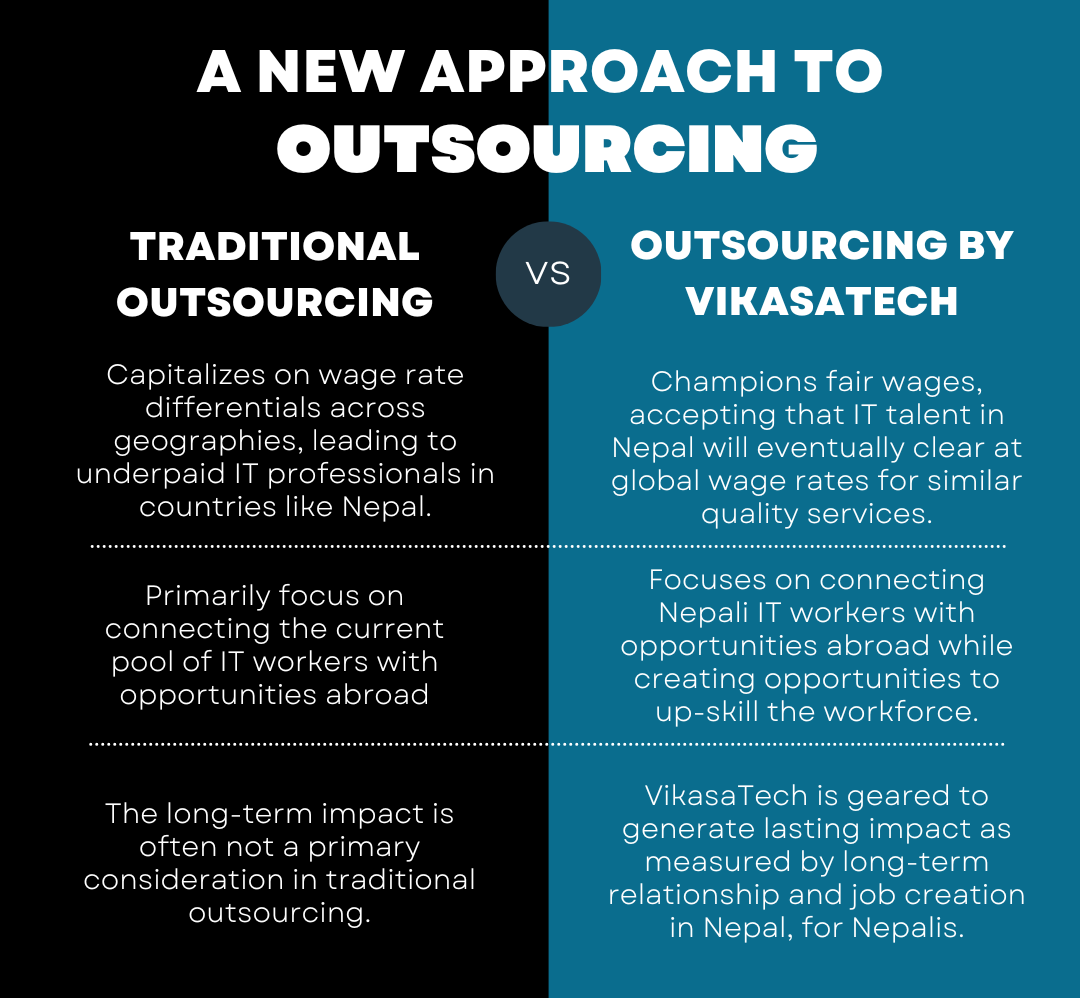VikasaTech: A Nuanced Alternative to Traditional Nepali Outsourcing
Outsourcing is largely the byproduct of imperfect labor markets. Stated differently, wage rate differentials for similar technical skills across geographies – and adjusted for factors such as the relative cost of living, etc. – generates avenues for arbitrage. Capitalizing on these opportunities has given rise to an explosion in outsourcing and offshoring business models. However, over time, markets return to equilibrium, which in the case of outsourcing implies margin compression and a requirement for continuous innovation.
At VikasaTech, a key business model innovation is our acceptance that IT talent based in Nepal will eventually clear at wage rates that better approximate global benchmarks for similar quality services. Explicit in this acceptance is our view that skills not location, will be the ultimate arbiter of fair wages and equitable opportunities for Nepali IT service professionals. Our business model accounts for this reality and aims to create long-term opportunities for IT professionals in Nepal, at levels of compensation that reflect their actual market value.
Making credible strides in this direction requires a step change from long-held norms. For one, it necessitates reconciling with and embracing the reality of heightened labor force churn rates. Second, it implies a need to focus on both the supply and demand aspects of a fast-moving IT labor market. Simply connecting the current pool of Nepali IT workers with well-paying opportunities abroad is one half of the challenge; the other is continually growing the base, while also creating opportunities to up-skill this work force. VikasaTech’s business model is designed to address these challenges, holistically.

While the creation of win-win outcomes for all ecosystem stakeholders is the ultimate intent, the proposed paradigmatic changes will entail short-term market dislocations and adjustments. For example, Nepali corporates – particularly those in the financial services sector – have benefitted from a home-grown and based IT workforce that has been perpetually undervalued and underpaid. Similarly, the public sector has also relied on the domestic IT workforce for a patchwork solution, delivered at rock-bottom rates.
These mindsets will have to evolve as complaining about the “brain drain” while also refusing to meet rates at which the global IT market clears, are fundamentally incompatible positions. Over the short term, the continual growth of physical digital infrastructure, virtual IT services marketplaces, and hybrid models like VikasaTech will create a level playing field for IT talent, irrespective of its physical location – and Nepal will not remain an exception to this rule.
VikasaTech’s differentiation is twofold: in addition to financially sustainable outcomes for our partners and shareholders, our business is also geared to generate lasting impact as measured by long-term relationship and job creation in Nepal, for Nepalis. Our ultimate measure of success will be a metric that expresses this outcome as the number of partners – both firms and individuals – that benefit from the relationship building and connectivity that VikasaTech enables, but beyond the collaboration horizon with VikasaTech.
